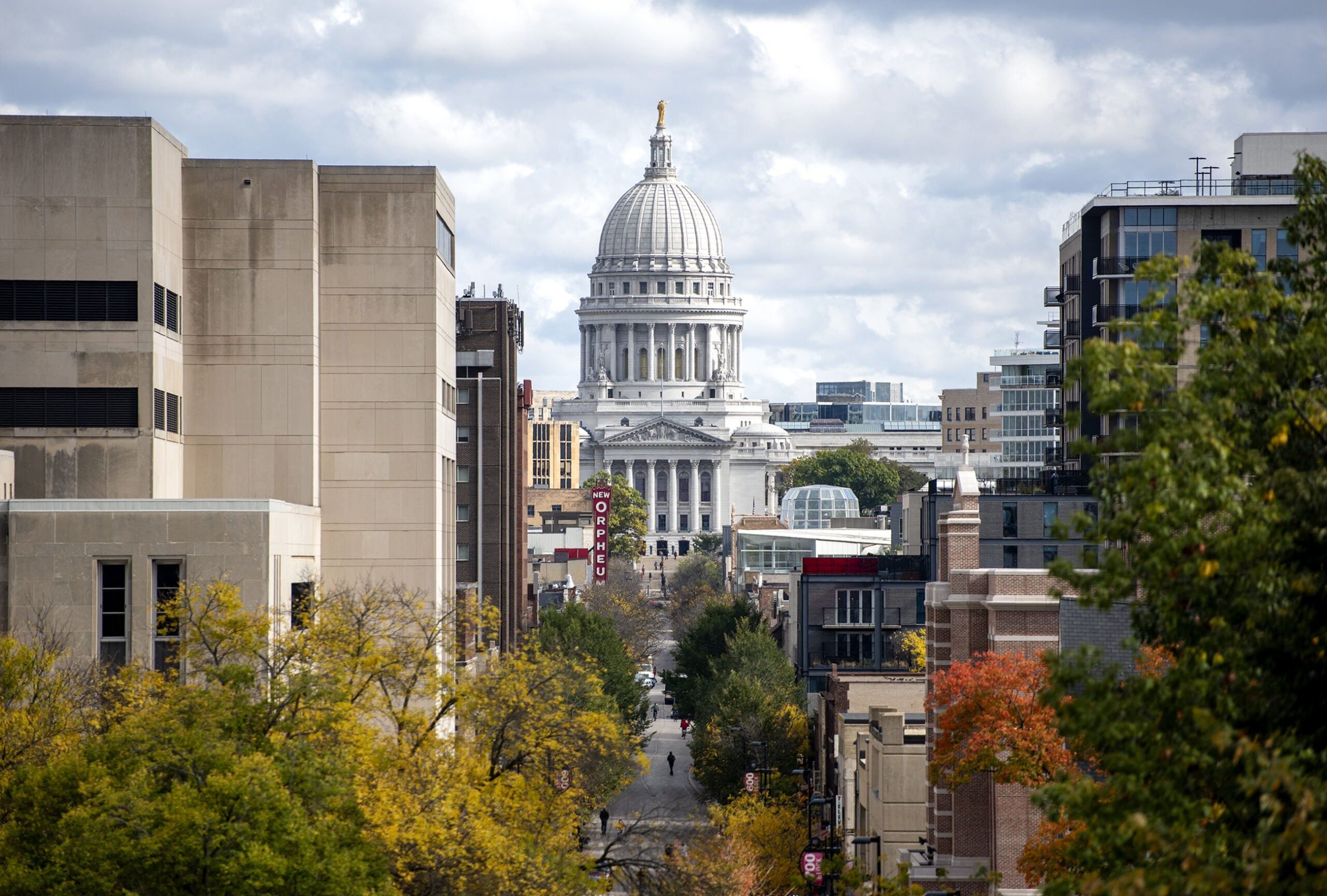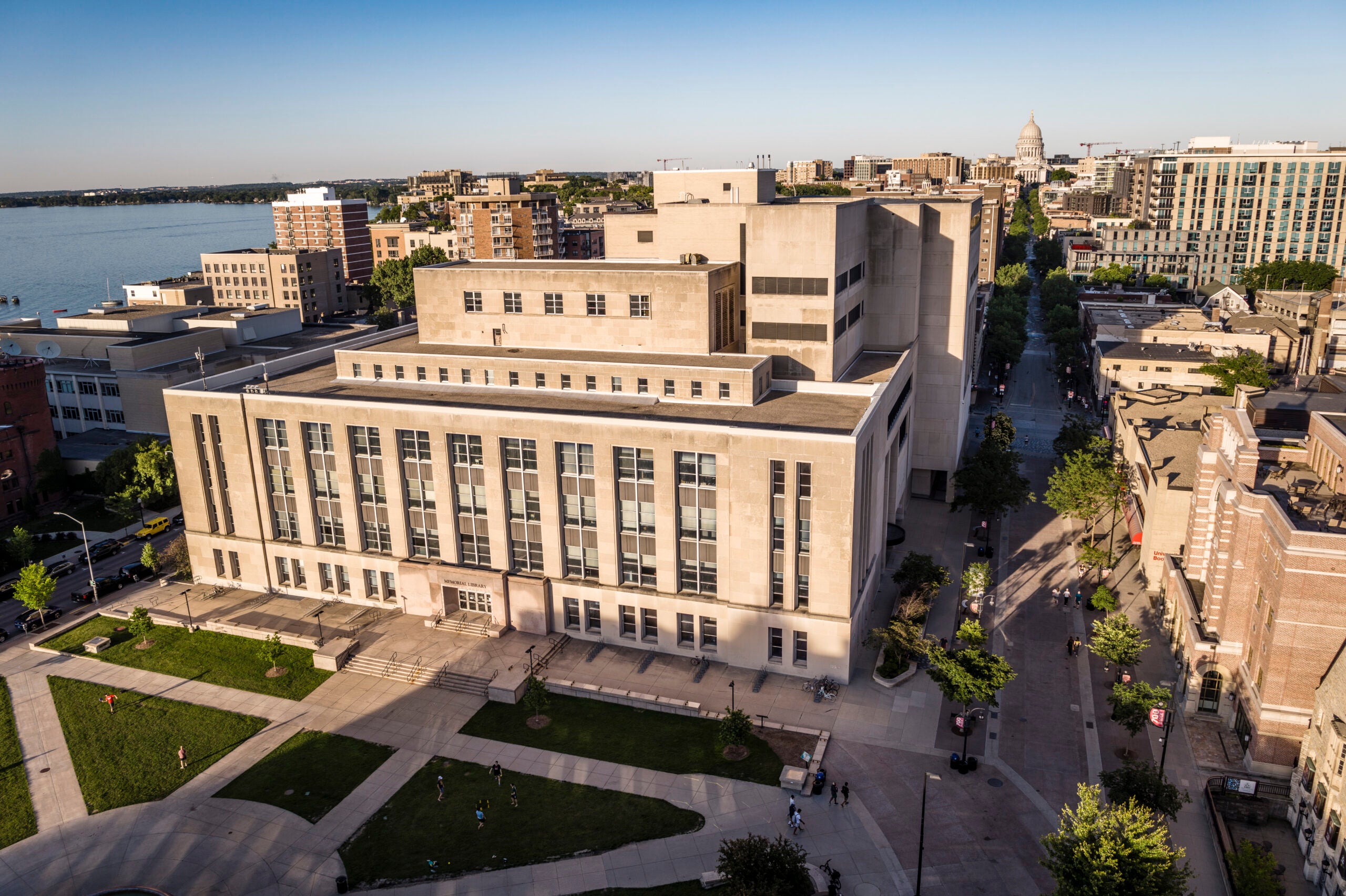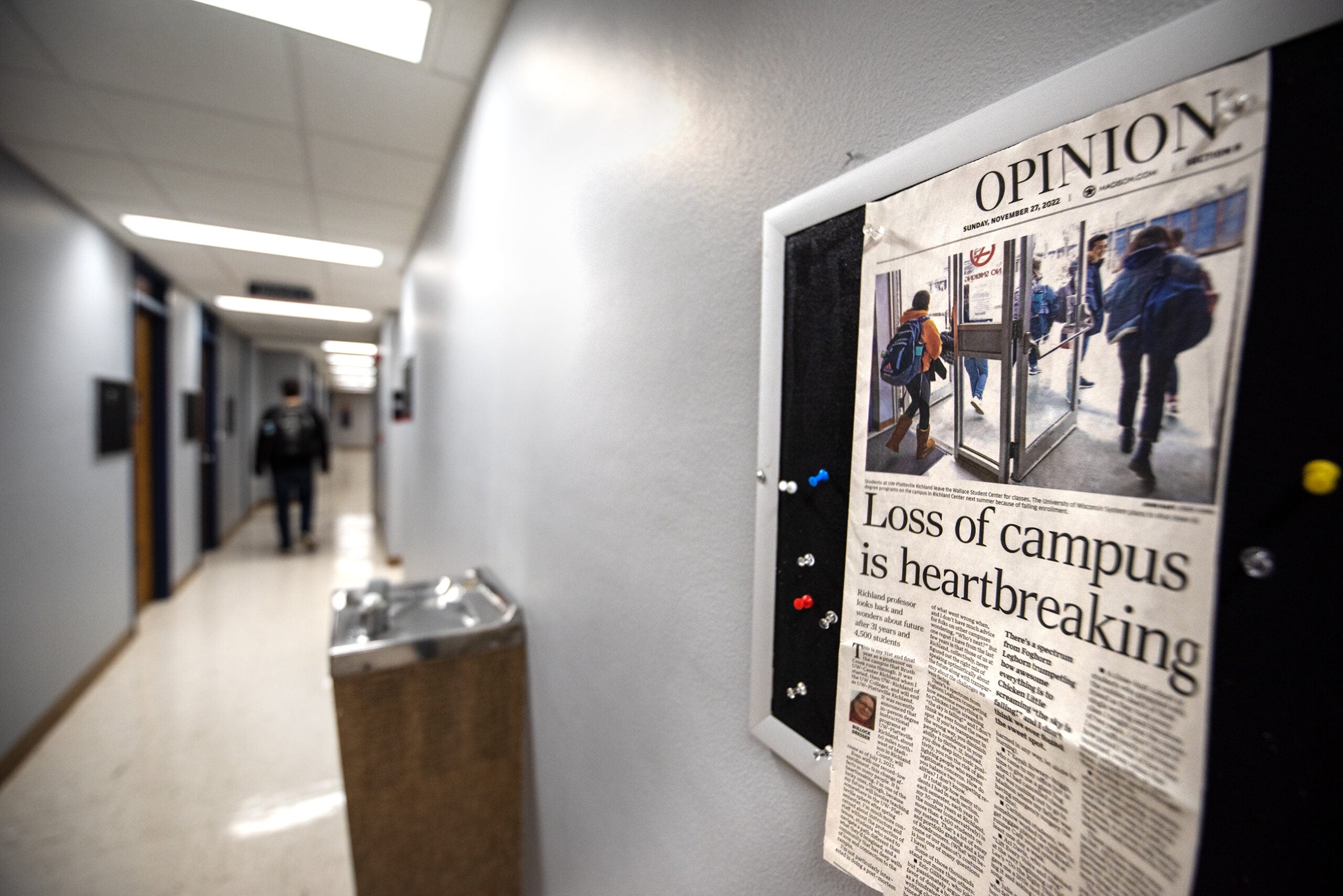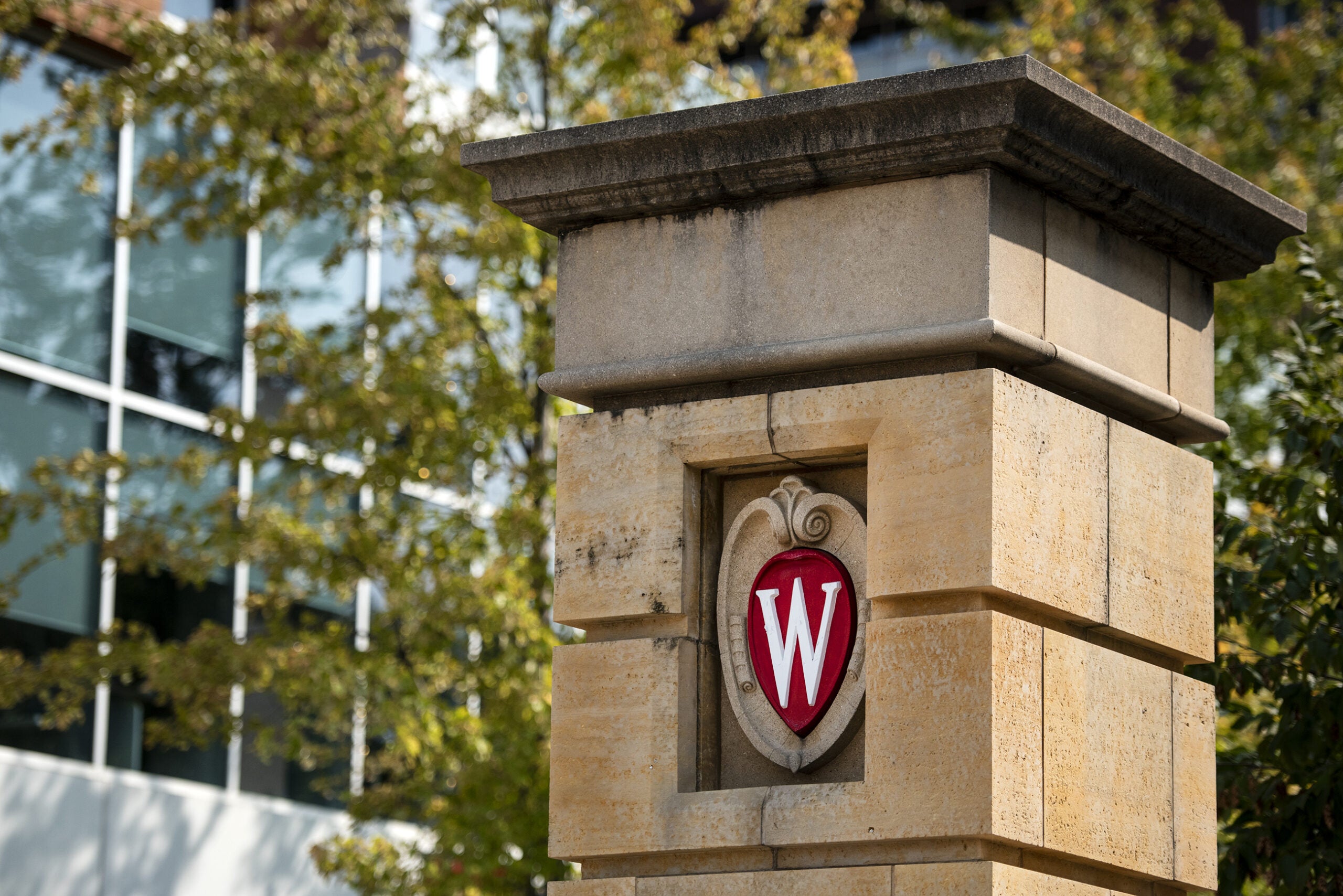As Republican state lawmakers consider limiting future University of Wisconsin System tuition increases for residents, UW officials say most campuses cannot meet ongoing expenses with current revenues.
The UW System Board of Regents raised tuition for undergraduates from Wisconsin by around 5 percent in March. It was the first such increase in a decade, following a tuition freeze first passed by GOP lawmakers that went into effect in 2013.
During a public hearing Thursday, before the Assembly’s Committee on Consumer Protection, State Rep. Dave Murphy, R-Greenville, and State Sen. Andre Jacque, R-DePere, testified on their bill to limit future tuition and student fee increases to the rate of inflation.
News with a little more humanity
WPR’s “Wisconsin Today” newsletter keeps you connected to the state you love without feeling overwhelmed. No paywall. No agenda. No corporate filter.
Murphy said there should be guardrails protecting students and families from future spikes. He pointed to examples where regents approved significant tuition hikes following previous freezes in 1967 and 1999. Data from the nonpartisan Legislative Fiscal Bureau shows tuition increased by 33 percent between the 2006-2007 academic year and the 2012-2013 academic year.
“So, if people tell you that this can’t happen, it most certainly can,” Murphy said.
Jacque said the bill would provide predictability for students by preventing the UW System from being able “to balance the budget on the backs of students.”
Committee member Rep. Sylvia Ortiz-Velez, D-Milwaukee, asked Murphy and Jacque if they knew why UW raised tuition by so much.
“I don’t want to get political with this,” Murphy said. “In one of these periods, (former Democratic) Gov. Doyle cut the (UW) budget $250 million. I don’t want to go there, because (former Republican Gov.) Scott Walker cut the budget $250 million also.”
That second cut came in 2015, when tuition was frozen. That forced UW campuses to spend down tuition reserves and cut staff to make up the difference.
UW System Vice President for University Relations Jeff Buhrandt and UW System Vice President for Finance and Administration Sean Nelson testified against the proposed cap on tuition and fees.
Burhrandt said, excluding UW-Madison, state universities have reduced their workforces by around 900 positions over the past 10 years.
“Our comprehensive campuses and UW-Milwaukee have made significant cuts to keep under these fiscal constraints,” Buhrandt said.
Nelson said state spending on the UW System has been flat during the past decade.
“Compared against inflation, our state support is down 15 percent, with state support being 18 percent of our total budget,” Nelson said. “So, it’s a pretty significant amount.”
Nelson said another major factor in the UW’s budget challenges are employee pay raises, which are approved by the Legislature. He noted the state covers 70 percent of that cost, while campuses must cover the remaining 30 percent.
Nelson said he believes the cuts are starting to “sacrifice quality” of the education the UW System can provide. Since raises were approved as part of the 2017-2019 state budget, Nelson said campuses have had to shift around $150 million to cover their share of the cost.
“The majority of our campuses cannot meet their ongoing expenses with recurring revenue,” Nelson said. “A lot of that is because of the flat state support.”
Buhrandt told the committee the UW System doesn’t take residential tuition increases lightly.
Ortiz-Velez asked him what guardrails should be in place to prevent future tuition spikes. Buhrandt said the “political process” is the guardrail, pointing to the recent tuition freeze.
“You have the authority to take action if the board acts in a way that you think is inappropriate,” Buhrandt said.
Wisconsin Public Radio, © Copyright 2026, Board of Regents of the University of Wisconsin System and Wisconsin Educational Communications Board.







